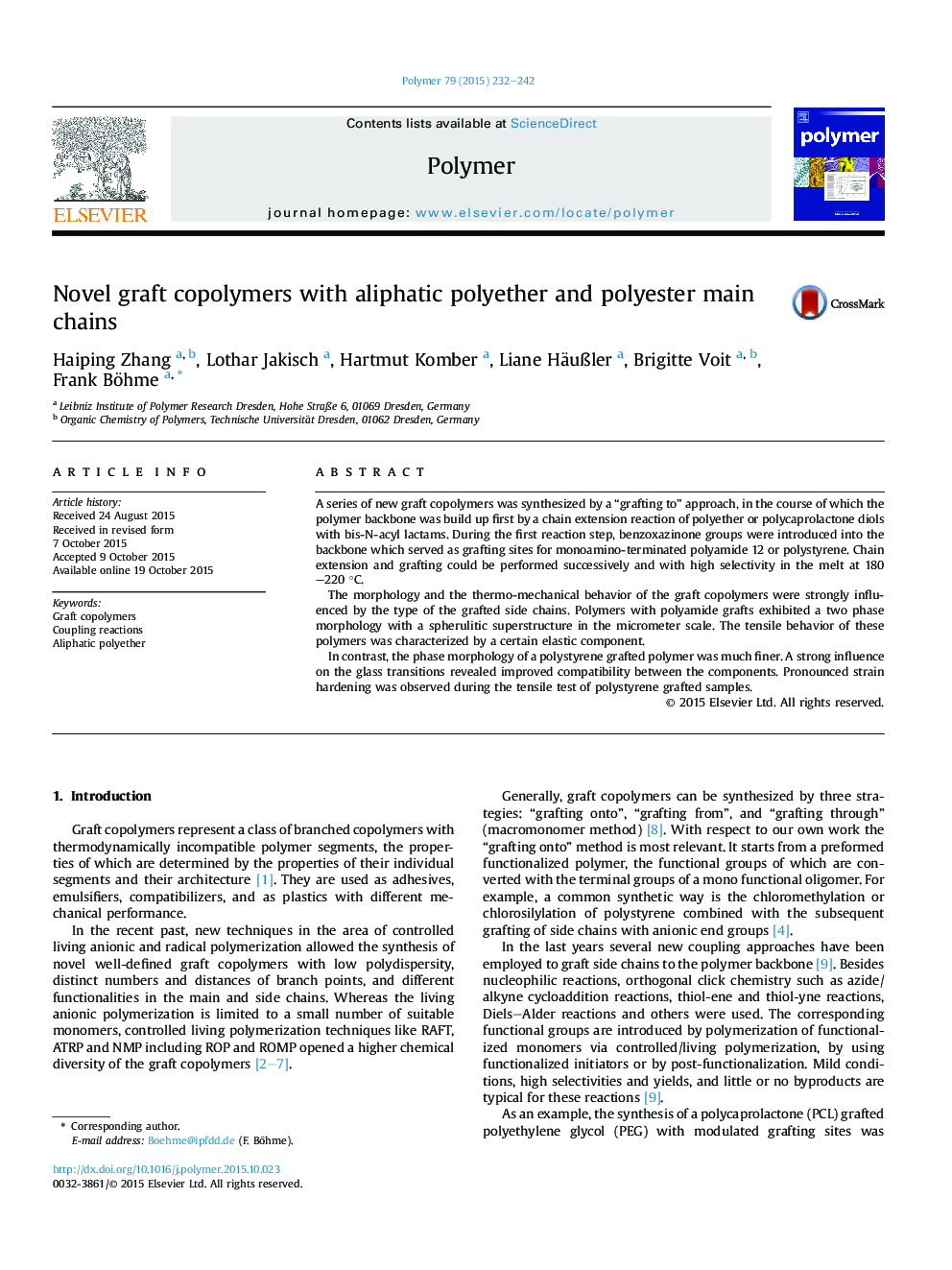| Article ID | Journal | Published Year | Pages | File Type |
|---|---|---|---|---|
| 5179857 | Polymer | 2015 | 11 Pages |
â¢New agents for selective coupling of amino and hydroxyl groups were utilized.â¢Graft copolymers with a PTHF backbone and PA12 or PS grafts were synthesized.â¢The polymer synthesis was carried out in two steps in the melt.â¢Graft copolymers with PA12 grafts exhibited a typical spherulitic superstructure.â¢The graft copolymers showed pronounced elastic behavior.
A series of new graft copolymers was synthesized by a “grafting to” approach, in the course of which the polymer backbone was build up first by a chain extension reaction of polyether or polycaprolactone diols with bis-N-acyl lactams. During the first reaction step, benzoxazinone groups were introduced into the backbone which served as grafting sites for monoamino-terminated polyamide 12 or polystyrene. Chain extension and grafting could be performed successively and with high selectivity in the melt at 180-220 °C.The morphology and the thermo-mechanical behavior of the graft copolymers were strongly influenced by the type of the grafted side chains. Polymers with polyamide grafts exhibited a two phase morphology with a spherulitic superstructure in the micrometer scale. The tensile behavior of these polymers was characterized by a certain elastic component.In contrast, the phase morphology of a polystyrene grafted polymer was much finer. A strong influence on the glass transitions revealed improved compatibility between the components. Pronounced strain hardening was observed during the tensile test of polystyrene grafted samples.
Graphical abstractDownload high-res image (170KB)Download full-size image
